QuestionI recently went to a reptile expo near my area in hopes of getting a tortoise. Upon finding the Red-foots, I decided that was the one I wanted. I asked the breeder if the Red-foots are easy to care for or if they require anything special. He simply responded, "No, they are fine in what you are fine in. Just keep it in room temperature and give it lots of greens and it'll be fine." If I knew he was saying this just to sell tortoises, I would've looked elsewhere. I'm sorry if this ends up extremely long, but I'd really like to sleep easier with more knowledge on my new pet.
1. Humidity. I have a digital thermometer that reads humidity in the 20 gallon tank I keep her in (she spends alot of the day in a fenced-in garden and I'm in the process of aquiring a bigger holding area). I spray it often and it has about 2 inches of cypress and standard wood chips in it. This gets the humidity around 65%-90%. I read 80% is best, but also due to the basking light, it is usually closer to the 65%-70% range. Is this still healthy as long as she has constant access to a water dish with fresh water big enough to soak/drink out of?
2. Temperature. I've read mixed facts about temperature. My main concern is lows. I've heard that 75 f, 65 f, 60 f, and 50 f are all lows for the Red-foots. As of right now where I live, nights get as cold as 55 f, but I use an infared heat lamp whenever the temperature is set to drop below 70 f (the 100 watt bulb is only powerful enough to keep the temperature above 70-75). All in all, her average day temperature is around 80-90, with nights no lower than 70. Are these safe limits or should they be warmer? Also, when winter comes (this is the hottest time of year) what are the best temps to aim for?
3. Feeding. Fortunately my tortoise has a very healthy apetite. She enjoys every leaf that grows in my lawn, kale (small doses due to the goiter risk), lettuces (another small dose), tomatoes, apples, dogfood (once again, just enough for the protein), bananas, and her favorite seems to be dandelion leaves. My question is, I read that tortoises should be fed around once every other day to once every three days. Like I mentioned earlier, she spends a good portion of the day outside in the lawn/garden at which time she eats everything in her path. Should I try to prevent her from eating every single leaf she likes, and if so, how?
4. A problem I noticed. This is the big one for me. She sleeps fairly often. Basically whenever she's in her tank or finds a nice thick shrub to burrow into, she's asleep. When I first wake her up, she keeps her eyes closed. The thing is, she keeps them closed for as long as 15-20 minutes. I can see her blinking them, but the lids stay shut. At first I was just waiting to see what would happen, but tonight it got me very nervous. She was at her food bowl in the tank (unfortunately the temperature dropped from 90 degrees yesterday to 60 (!!!) today so she wasn't outside) and she had her eyes closed how I said. She was standing with her head above the food biting at thin air. She obviously smelled the food, but without her eyes open she was blindly biting at nothing trying to get food. She even bit her bowl a few times. Eventually she opened an eye (sometimes one opens and the other stays shut awhile) and got to the food fine. With her biting blindly in foods general direction, I'm very scared that this is a serious problem.
Thanks in advance for the help. I've been reading articals, I bought a book, and I'm still nervous that I'm not providing the care my tortoise needs. If I knew Red-foots required this sort of care I would've searched for a tortoise that would be more comfortable in my cooler/drier area, but since I have her I'd like to do everything in my power to make sure she is as healthy as possible.
Answersince you have so many questions I reccomend seeing this website:
http://www.beardiedragon.com/pages/Care/RF_Care.html
also call around and find a locle herp vet and see if you can get your new pet in for a check up fecal test and deworming and you can of course ask such a vet important care questions. also picking up a tortise book from a libray or bookstore would be useful as well.

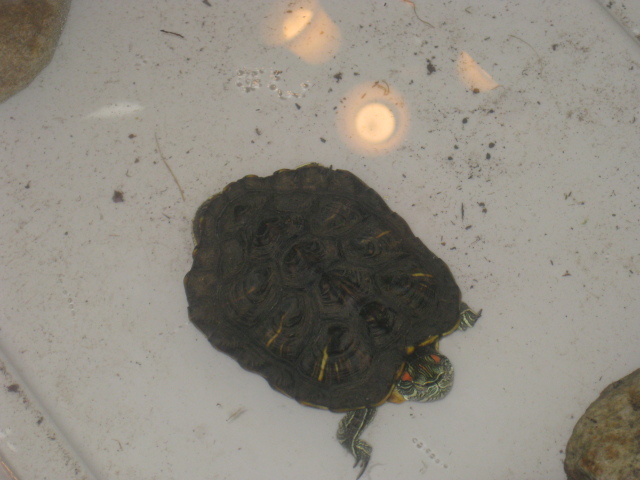 Possible RES Found
Question
Turtle
Hello!
One of my neighbo
Possible RES Found
Question
Turtle
Hello!
One of my neighbo
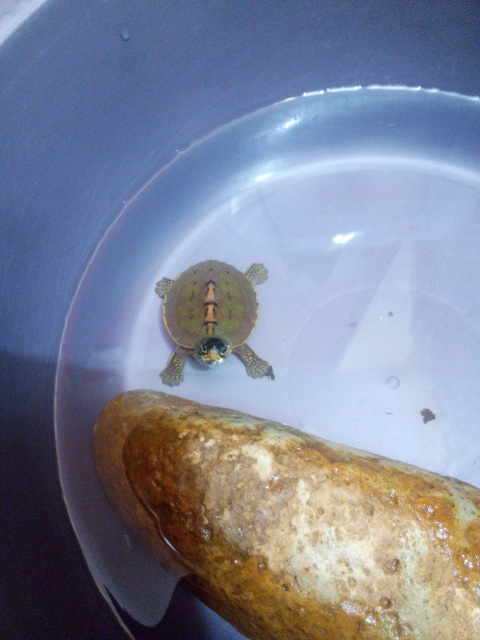 Indian roofed turtle (pangshura tecta)
QuestionQUESTION: Hi,
I have a Indian roofed turtle (Pa
Indian roofed turtle (pangshura tecta)
QuestionQUESTION: Hi,
I have a Indian roofed turtle (Pa
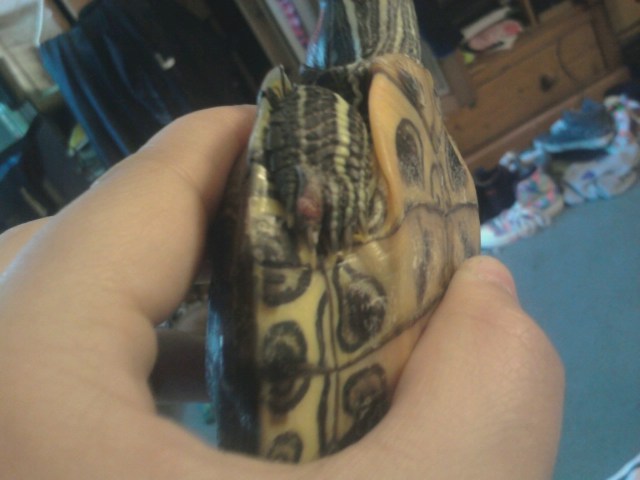 Turtle skin problem
Question
Paw bleeding
My turtle Squirtle is a Red Ear S
Turtle skin problem
Question
Paw bleeding
My turtle Squirtle is a Red Ear S
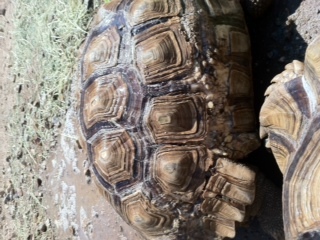 Sulcata tortoise shell question
Question
Sulcata Shell
Hi. I have a female sulca
Sulcata tortoise shell question
Question
Sulcata Shell
Hi. I have a female sulca
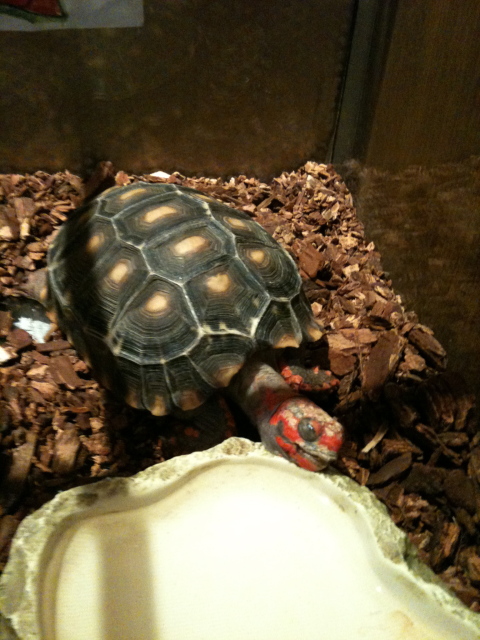 cherry headed red footed tortoise
Question
accolnite
out tortoise is about 9 years hold r
cherry headed red footed tortoise
Question
accolnite
out tortoise is about 9 years hold r